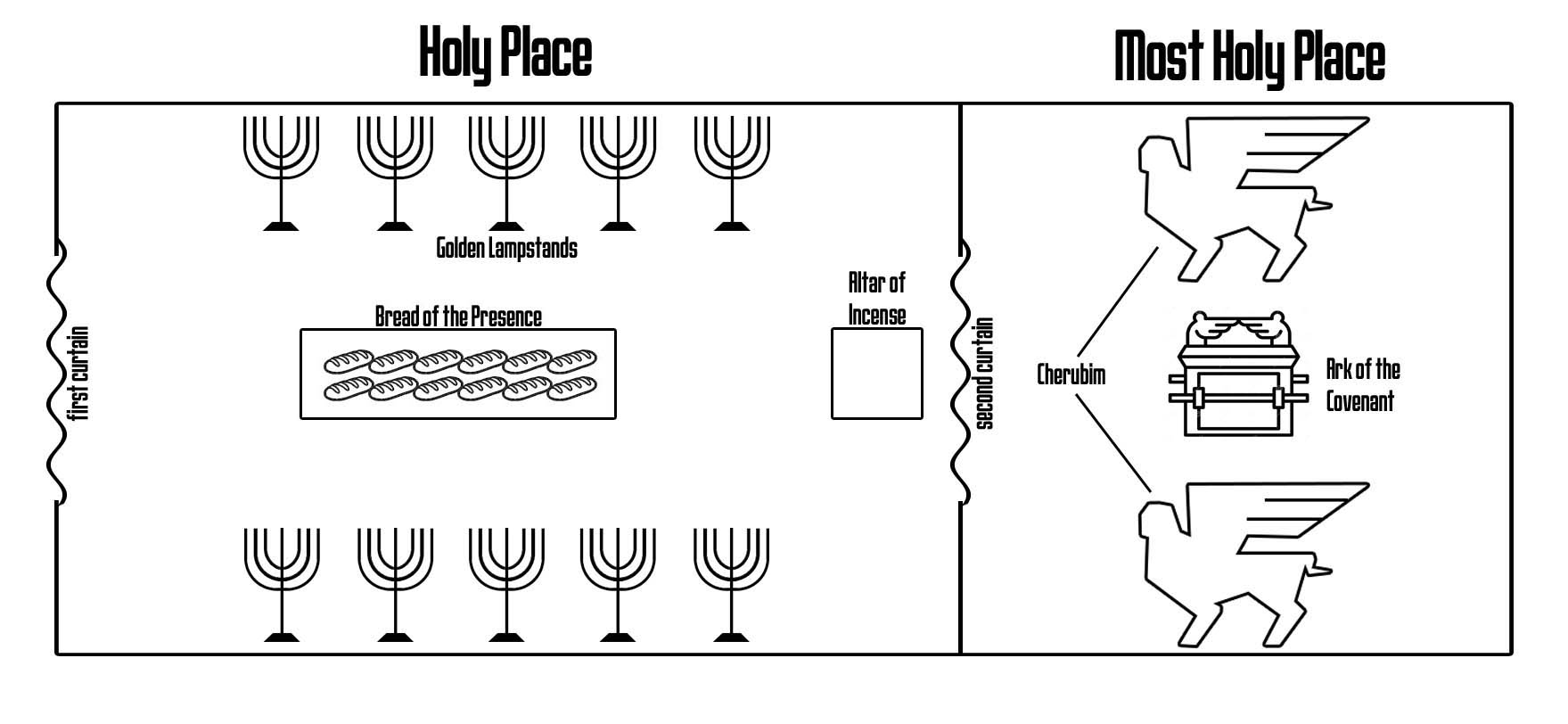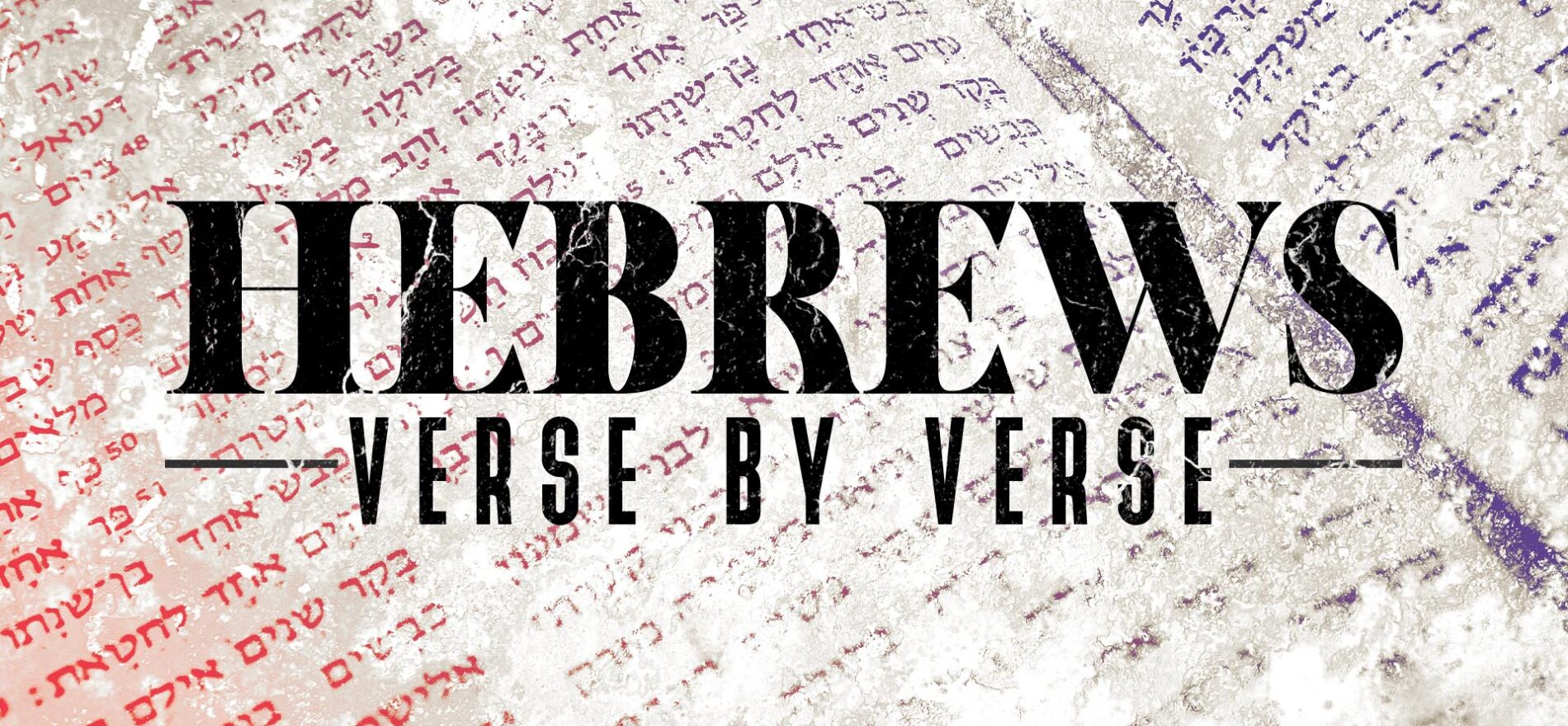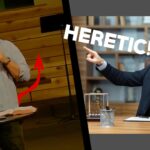Have you ever wanted to give up? That one thing that keeps rearing its head just happened again. Once again you feel the guilt and shame. Once again you feel inadequate. Once again, you question why you even bother trying. In comparison to life’s struggles, it’s such a small thing, yet it wields a power over you that you cannot reconcile. You wonder why this continues to be a problem. You thought by this point in your life, things like this would be conquered and in the rearview mirror, but, alas, it’s still with you. It still enslaves you. And today, giving in seems like a more palatable course of action because, if you can’t beat ‘em, join ‘em.
Friends, I have been there. And oh, how I wish this was relegated to only one thing. The LORD has given me victory over many things, but it seems that once I’m freed from one thing, another problem comes into focus. I will be there again and again until I see Jesus. So will you.
However, as I have spoken with people over time, it’s clear that some people are fighting with all the wrong weapons. This problem is everywhere, but it’s particularly pernicious in church communities. If you fight a spiritual problem with the wrong weapons, even if it seems you’re successful for a moment, over the long term, there isn’t a true victory.
The author went deep in Hebrews 9. He made a deep cut into the heart of Jewish worship. The most sacred structure – the Temple – wasn’t all it was cracked up to be. However, the author wasn’t going for shock and awe for the sake of just tearing down everything Jews held dear. He had a bigger, and better point to make. The Temple, and the covenant that came with it, were temporal and had outlived their usefulness. If I may say it this way, relying on that institution for sanctification was using the wrong weapon.
The Copy and Shadow
1 Now even the first covenant had regulations for worship and an earthly place of holiness. 2 For a tent was prepared, the first section, in which were the lampstand and the table and the bread of the Presence. It is called the Holy Place. 3 Behind the second curtain was a second section called the Most Holy Place, 4 having the golden altar of incense and the ark of the covenant covered on all sides with gold, in which was a golden urn holding the manna, and Aaron’s staff that budded, and the tablets of the covenant. 5 Above it were the cherubim of glory overshadowing the mercy seat. Of these things we cannot now speak in detail.
– Hebrews 9:1-5 (ESV)
In the previous chapter, the author called the heavenly temple, the true tent, and the earthly temple a copy and shadow of the heavenly things. He furthered that discussion in chapter nine, starting with this description. I want to be clear that the author wasn’t denigrating the earthly temple. I believe he, like any Jew, revered and held that place in honor. In verse one, he rightly called it an earthly place of holiness. Under the old covenant, the regulations for worship helped prepare worshipers for sacred space through washings and sacrifices that sanctified them. God’s holiness wasn’t increased by the regulations for worship, but rather the worshiper was set apart and made ready for entering a holy place. Though, only the priests were permitted entrance into the Holy Place, even they had to wash up every time.
If you’re a careful student of the Word, you’ll recognize a couple of things in these verses. First, the author is only describing what was within the tent or the temple building. He wasn’t describing everything within the outdoor courts of the Temple. He zooms in on the Holy Place and the Most Holy Place – also called the Holy of Holies. Here’s a simple diagram.

Second, on a casual reading, it seems the author placed the altar of incense inside the Most Holy Place when it was actually positioned just outside of it. Some have pointed to this as an error in the author’s teaching, hence an error in the Biblical text. But the error is only apparent, not actual. The language he used – having the altar of incense – implies ownership rather than location. The high priest would take incense from the altar with him when he entered the Most Holy Place. Therefore, a primary function of the altar belonged to the Most Holy Place, though it was physically positioned just outside.
Beyond this, the author basically said there wasn’t time to go into more detail, and neither will I. It would do us well, though, to remember that despite its beauty and glory and holy stature (especially Solomon’s Temple) it was a copy and shadow of the true tent.
What Happened in There?
6 These preparations having thus been made, the priests go regularly into the first section, performing their ritual duties, 7 but into the second only the high priest goes, and he but once a year, and not without taking blood, which he offers for himself and for the unintentional sins of the people.
– Hebrews 9:6-7 (ESV)
Time forbids me to go into great detail about the many different activities that happened within these walls. Exodus, Leviticus, and Numbers are brimming with the various kinds and types of sacrifices that needed to be made for all manner of sins. Go read that if you truly want the skinny on all of the priests’ duties within the temple. However, we can briefly speak of what the author mentioned. Look at the diagram. In the Holy Place, there are three stations: lampstands, the bread of the Presence, and the altar of incense. As such, the responsibilities of the Levites in the Holy Place included:
- Keep the lampstands lit refilling the oil every evening.
- Replenish the bread of the Presence every Sabbath.
- Replenish the incense on the altar every evening.
Then on a yearly basis, the high priest would enter the Most Holy Place with incense from the altar, and blood from a sacrifice. He sprinkled the blood on the ark of the covenant for the forgiveness of Israel’s sins and the smoke from the incense represented the prayers of Israel before the LORD.
Now for Something Completely Confusing…
8 By this the Holy Spirit indicates that the way into the holy places is not yet opened as long as the first section is still standing 9 (which is symbolic for the present age). According to this arrangement, gifts and sacrifices are offered that cannot perfect the conscience of the worshiper, 10 but deal only with food and drink and various washings, regulations for the body imposed until the time of reformation.
– Hebrews 9:8-10
Wait a second. Don’t we sing songs and preach sermons that talk about how the curtain has been torn and now we have access to the Father by the blood of Christ? What did the author mean by that the Holy Spirit indicated that the way into the holy places is not yet opened? Notice that the author was speaking in the present tense – is not yet opened. And what’s this business about the Holy Place being symbolic of the present age?
Let me start this explanation by emphasizing the importance of accuracy and precision when the Word is taught. There’s a reason Paul encouraged Timothy to rightly handle the word of truth. Doing it recklessly creates eventual misunderstandings. First, I don’t think our worship songs, hymns, and sermons are incorrect to teach that the way to the Father has been opened. Christ has ascended and serves as our high priest for the very purpose of mediating this new and better covenant on our behalf. However, the author delved into a realm of precision in his teaching that demands a sharper focus. Let’s define our roles.
Christ is our High Priest, and we, His people, are a kingdom of priests. There’s the first similarity. The Old Covenant had a high priest and regular priests. Those high priests did things and went into places that the regular priests could not. It’s the same in the new covenant. Christ ascended to the true tent where He continually serves, while we remain here on earth to do our service. It’s as if we are serving in the Holy Place, and Christ is serving in the Most Holy Place. Do you see the analogy coming together? The author said that the Holy Place is symbolic of the present age. And… we do the same things in our priesthood that the old priests did.
- Lampstands: You are the light of the world. Let your light shine before men. Keep your lamp oil filled. The Holy Spirit is represented by oil. We are continually to be filled with the Holy Spirit.
- The bread of Presence: Just as the old priests consumed the bread of Presence that was being replaced, we consume the bread in the Lord’s Supper. Jesus is the bread of life. The bread represents His body given and broken for us.
- Altar of Incense: Incense represents the prayers of God’s people. We pray without ceasing.
In the Old Covenant, these were all done outside of the Most Holy Place. These were outward signs of the covenant. They’re outward signs for new covenant believers as well. They show forth what has happened on the inside! We’re changed on the inside, therefore we are a people filled with the Spirit, who pray without ceasing and depend on the Bread of Life.
With all of that in mind, the author’s confusing remark about the first section – the Holy Place – representing the present age begins to make more sense. The author saw the activities of the old priests, and our activities as new priests as the same kinds of work. But we must remember that the author has employed a simile, which is a comparison between two things with similarities. Like metaphor, simile has built-in inaccuracies. You don’t employ similes to say things are exactly the same. You use them to say things are similar. He communicated truth by comparison. There isn’t an actual physical temple building on earth, but we continue in similar priestly service. Like the old regular priests, we do our work outside of the Most Holy Place. And like the old high priests, Christ has entered the Most Holy Place to do His work.
Before I finish this line of thought, I must mention the core difference. You and I, as new covenant priests, may not have physical access to the Most Holy Place yet, but we do have access by the Holy Spirit. The old covenant priests never had the indwelling Holy Spirit as we do. It’s because of this reality that we can sing about entering behind the curtain. We can preach boldly that the veil has been torn and access to the Father is open. But it is only open through Christ, by the Holy Spirit. You and I cannot yet just walk into the unfiltered, unveiled presence of the LORD. That day is coming, but not yet. Until that day, we will continue our service in this Holy Place – the present age – which will stand until Christ returns.
The Outside Only
The second half of verse nine and verse ten remind me of something Jesus once said to the Pharisees.
27 “Woe to you, scribes and Pharisees, hypocrites! For you are like whitewashed tombs, which outwardly appear beautiful, but within are full of dead people’s bones and all uncleanness. 28 So you also outwardly appear righteous to others, but within you are full of hypocrisy and lawlessness.”
– Matthew 23:17-28 (ESV)
The Pharisees were very meticulous at observing the law. Their diets and every sacrifice, every peace offering, every washing, and every Sabbath were practiced pedantically. Yet, as Jesus pointed out, none of it did anything to transform their hearts. In fact, their law-following made them self-righteous and harsh with people outside of their sect.
9b According to this arrangement, gifts and sacrifices are offered that cannot perfect the conscience of the worshiper, 10 but deal only with food and drink and various washings, regulations for the body imposed until the time of reformation.
I won’t spend many words talking about this. Over the course of this study, the author of Hebrews has already made it abundantly clear to us that the law is unable to perfect worshipers. It dealt with purifying people for a moment while they worshiped in sacred space, but did nothing to fix the problem of the hard heart and dead spirit. The apostle Paul alluded to this problem in Romans.
7 What then shall we say? That the law is sin? By no means! Yet if it had not been for the law, I would not have known sin. For I would not have known what it is to covet if the law had not said, “You shall not covet.”
– Romans 7:7 (ESV)
Paul was a Pharisee before his rebirth. He excelled at it and was a rising star in their sect. It’s interesting that he singled out coveting. Unlike the other commandments, coveting is entirely an attitude of the heart. It’s not something you do to someone else. If you covet your neighbor’s wife, they may never know about it because it’s an attitude that lives within your heart. The law did nothing to conquer coveting. In fact, the law increased Paul’s coveting because it made him acutely aware of it. No amount of sacrifice or peace offering or Sabbath observance could cleanse Paul’s heart from coveting.
The law dealt with how we honor the LORD and others outwardly in our actions, but was powerless to change the worshiper’s heart. Jesus wasn’t the first person to sound the alarm. The prophets sounded it hundreds of years prior.
And the LORD said, “Because this people draw near with their mouth
and honor me with their lips,
while their hearts are far from me,
and their fear of me is a commandment taught by men,”
– Isaiah 29:13 (ESV)
The law made you look good, but it never made you truly good.
The Good Things
11 But when Christ appeared as a high priest of the good things that have come, then through the greater and more perfect tent (not made with hands, that is, not of this creation) 12 he entered once for all into the holy places, not by means of the blood of goats and calves but by means of his own blood, thus securing an eternal redemption. 13 For if the blood of goats and bulls, and the sprinkling of defiled persons with the ashes of a heifer, sanctify for the purification of the flesh, 14 how much more will the blood of Christ, who through the eternal Spirit offered himself without blemish to God, purify our conscience from dead works to serve the living God.
– Hebrews 9:11-14 (ESV)
I won’t retread the high priest discussion that we’ve already thoroughly addressed in previous articles. Let’s get to the author’s point, and wrap this up.
- Christ serves in the greater and more perfect tent not made by human hands. It is the heavenly Temple which Moses was shown to copy.
- The sacrifices in the earthly tent only addressed purification of the flesh. Because the hearts of worshipers weren’t cleansed, the outward cleansing had to happen again and again.
- Christ’s more perfect sacrifice, delivered to the more perfect tent went to the root of the problem. Sanctify the heart, then the flesh will follow. Sanctify the heart, and our lips will no longer defile us.
- “The good person out of the good treasure of his heart produces good, and the evil person out of his evil treasure produces evil, for out of the abundance of the heart his mouth speaks.” Luke 6:45 (ESV)
The whole reason the old system is now obsolete is because in Christ the heart is sanctified. Change the heart, transform the whole person. This is the good things that have come.
The Right Weapon
I began this article saying that many never gain victory because they fight with the wrong weapons. What wrong weapons? Law. If you fight with law, you’ll never win. Why? Law doesn’t change the heart. Oh, you may not be going back to the Old Covenant system of sacrifices, but you’ve fallen prey to the laws and traditions of men that have found a very safe harbor within churches. They make you look good, maybe even feel good, but the problem remains.
If you’ve ever done any lawn landscaping or gardening, you know this: weeds must be uprooted, not simply chopped down. I know this is what keeps many religious people busy. They’re busy chopping the weeds down. But because they never pull out the root, the weeds keep coming back. This is a spiritual treadmill. You’re running, sweating, and look incredibly active, but you’re not going anywhere. Using laws and traditions of men to overcome sin will make you look and sound faithful, but you’re not really going anywhere. You may even be completely lost, but you sure look saved.
I’m going to leave you with this thought and an admonition. Are you the person I described way back at the start? Is it possible that maybe you haven’t actually believed in Jesus? You know who He is, you understand what He came to do, and you have even united yourself with a local church fellowship. Yet, no amount of anything you’ve tried has given you real victory with your problems. Consider your confession. Have you professed Jesus, but trusted in law? Have you believed He is the Son of God, but continue to lean on traditions for transformation?
That may be why you’re losing. If so, you need to be saved. Turn away from these dead works. Renounce the laws and traditions of men. Trust Christ alone to save AND sanctify you. I can’t tell you that your problems magically disappear overnight, but fighting with the right weapon will eventually lead to victory. Jesus is our weapon. He is the Word, which is also the sword of the Spirit.
He changes your heart. He transforms your life. No tradition, no law, no system can do what He does.







